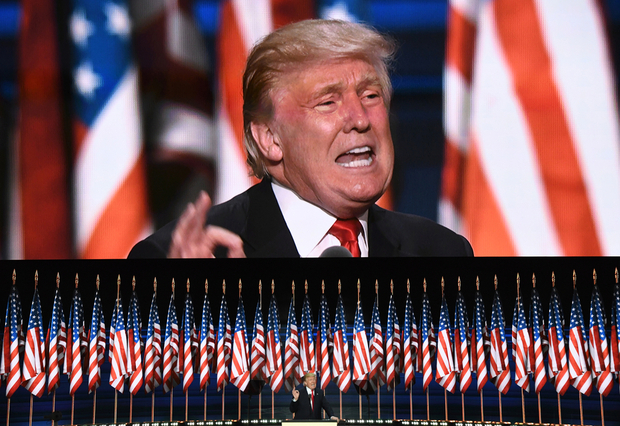After Pakistan’s cricket hero-turned-politician Imran Khan claimed victory in July in the country’s tense general election, Pakistani religious minority groups started bracing for a fight.
Many left-leaning Pakistani political observers and critics have compared Khan to U.S. President Donald Trump.
“There are many parallels that one can draw between Imran Khan’s pandering to the religious right and Donald Trump’s pandering to xenophobic groups in the United States,” Nida Kirmani, a sociologist, professor, and political observer based in Pakistan’s Lahore, told The Globe Post. “Both leaders earlier took more liberal positions, but later shifted to the right as a means of gaining power.”
One of the key points Khan campaigned on, particularly over the past few years, was in defense of the blasphemy law in Pakistan, an often rallying point for the country’s most religiously conservative base.
A study by Minority Rights Group International on religious minorities in Pakistan criticized the blasphemy law, for which penalties range from a fine to a death sentence, for primarily being used to “persecute religious minorities or to settle personal vendettas,” but any calls for change in the blasphemy laws have been strongly resisted by Islamic parties.
During one of his last rallies leading to the election on July 25, Imran Khan reminded his supporters that his political party, Pakistan Tehreek-e-Insaf (PTI), would irrevocably defend the law.
“It’s very worrying that Imran Khan and other politicians have expressed support for the blasphemy laws during this election period,” Omar Waraich, Deputy Director of South Asia, Amnesty International, told The Globe Post. “The laws are vaguely worded and coercive, having a disproportionate impact on religious minorities.”
At least 1,472 people were charged under Pakistan’s blasphemy laws between 1987 and 2016, according to statistics collected by the Center for Social Justice, a Pakistan-based advocacy group.
“Often, on the basis of little or no evidence, the accused face charges they cannot effectively defend themselves against,” Waraich added. “The new Pakistani government should amend or repeal all discriminatory laws.”
Ahmadis, who identify as Muslims and consider Ahmadiyya a sect of Islam, particularly face the brunt of religious discrimination and persecution.
“Although Khan’s manifesto states he will protect rights of religious minorities in Pakistan, his campaign rhetoric suggests otherwise,” Kashif N. Chaudhry, an advocate against Ahmadiyya persecution, told The Globe Post. “Imran Khan has employed toxic sectarian and anti-Ahmadi rhetoric to woo the far right during his election campaign.”
Pakistan’s constitution prohibits Ahmadis from identifying as Muslims. An anti-Ahmadiyya Ordinance XX issued in 1984 also prohibited the four million Ahmadis living in the country from “posing as a Muslim” with a penalty of up to three years in prison.
Leading up to the elections, Khan has attended several conferences where demands to place further restrictions on civil rights of Ahmadi Muslims were made.
“No political party has come out in condemnation of the anti-Ahmadi laws of Pakistan,” Kashif said. “However, no major party leader has utilized such blatant hate speech during their campaigning as Khan has.”
Activists are currently uncertain of how much of Khan’s gradual shift to the right for political opportunism will trickle down into policies established by the government.
“The worst case scenario is that he will let these [extremist] allies a free hand to hurt Pakistan’s religious minorities even more, either by turning a blind eye to their violence or tighten legislation against religious freedom,” Kashif added. “It is yet to be seen what posture he adopts towards his extremist allies, but religious minorities will definitely be on alert in the first few months of his regime.”
A university student and activist based in Karachi stated that the overall climate of the country leaves little room for being actively vocal against religious intolerance.
“Even criticism of the blasphemy law can be misinterpreted as blasphemy,” the activist, who wished to remain anonymous, explained to The Globe Post. “There isn’t much you can do about it on major platforms but that’s not to say there aren’t isolated movements on smaller scales that are taking a stand against intolerance and hate.”
One of the most recognized of these movements was lead by Jibran Nasir, a secular activist and human rights lawyer from Karachi, who ran as an independent candidate for a seat in the National Assembly of Pakistan and a Provincial Assembly this election.
“He didn’t win but he has started a public conversation that speaks up against anti-Ahmadi rhetoric, religious tolerance, and inclusion,” the activist explained. “And people are taking him seriously enough for those who have been campaigning on hate for decades to consider him a threat.”
Nasir was asked to declare his religion at a public forum while campaigning and he denied to answer on the principle that it was not relevant. At one point during the campaigning, he was met with a mob who demanded he refutes Ahmadis and then proceeded to rip his posters.
Nasir has since launched his own political party, Aam Awaam Movement. According to a public statement, one of the party’s core principles is to stand against extremist propaganda and focus on solving problems faced by the public.
“I don’t know if such a progressive agenda will win mainstream votes anytime soon but its a start,” the activist added. “Once, people realize that the common enemy is poverty and corruption and not religious differences, we will be able to move the country to a better place.”
A number of candidates from minority backgrounds did win provincial seats and Mahesh Malani became the first Hindu and non-Muslim to win a seat in the national assembly. Dawn, a Pakistani daily newspaper, cited an official document to report that Non-Muslim voters registered in the country have increased by 30 percent since the last elections.
When comparing Imran Khan rhetoric to President Donald Trump’s, Kirmani looked for the silver lining.
“In the United States, this has led to the emboldening of racist groups, but it has also encouraged a progressive movement of resistance,” she said. “One can see a similar trend possibly emerging in Pakistan.”






















